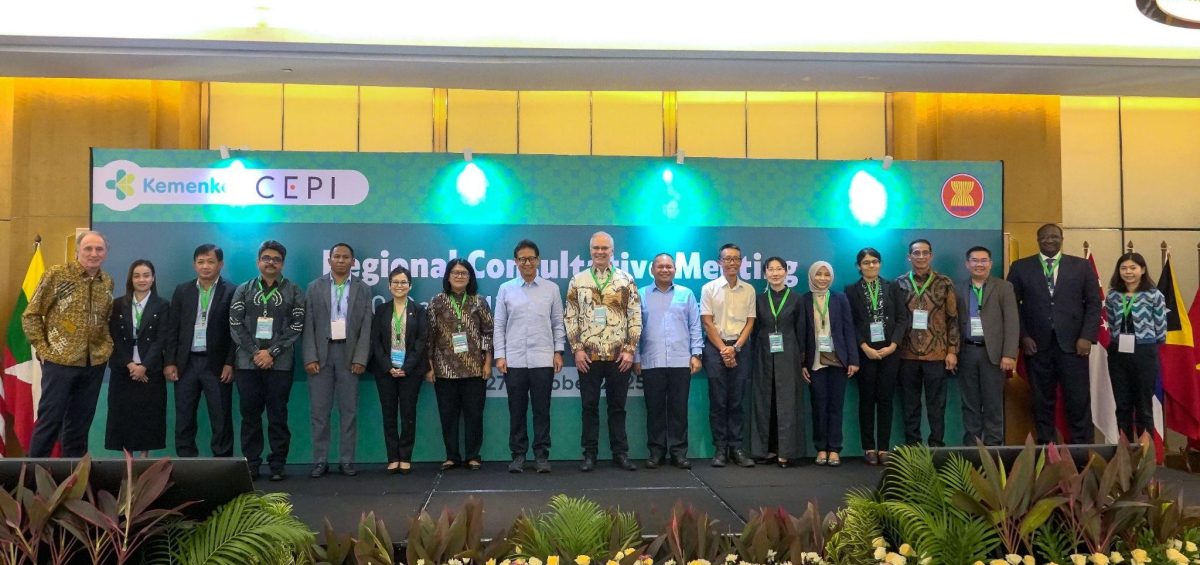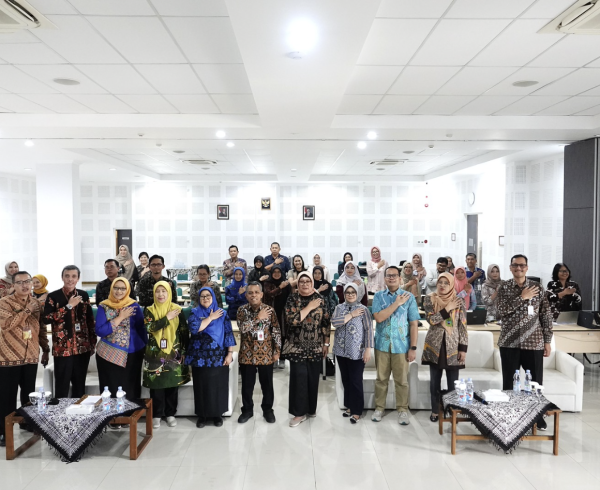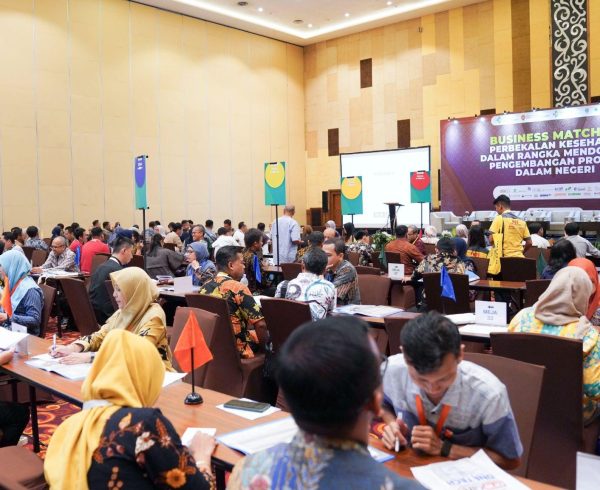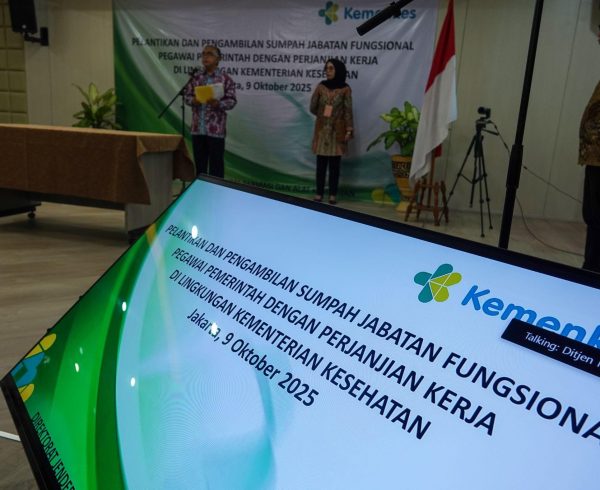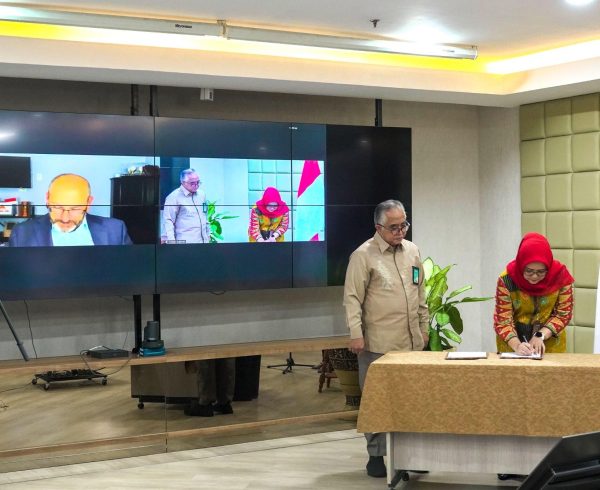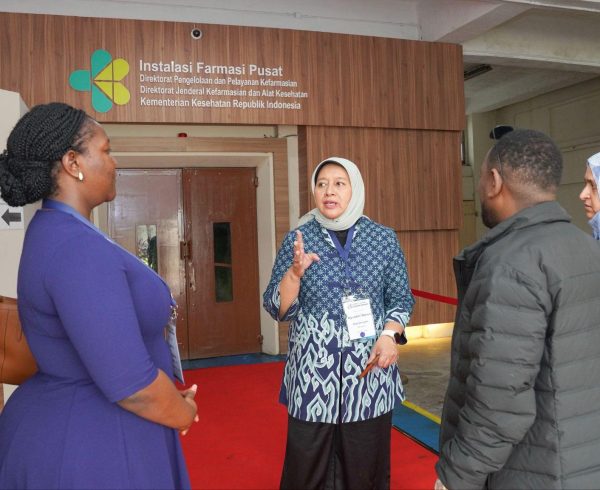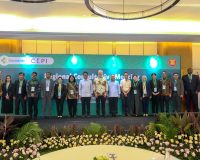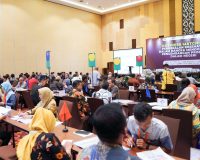Jakarta, 27 October 2025
Located at The Westin Jakarta, the Ministry of Health of the Republic of Indonesia through the Directorate General of Pharmaceuticals and Medical Devices and Directorate General of Health Policy Agency, in collaboration with the Coalition for Epidemic Preparedness Innovations (CEPI), held a series of activities supporting the implementation of the 100 Days Mission (100 DM) in Indonesia and Southeast Asian region.
The activities began with the Regional Consultative Meeting on the 100 Days Mission and Equitable Access for Vaccine Development and Manufacturing, which gathered ASEAN member countries, international organizations, academia, industry, and civil society to strengthen regional cooperation in accelerating vaccine development and ensuring equitable access.
CEPI CEO Dr. Richard Hatchett explained that the 100 Days Mission initiative is supported by G7 and G20 countries to accelerate vaccine development against emerging pathogen threats in as little as 100 days. This is around a third of the time it took to develop the first COVID-19 vaccines. Faster global responses to a new deadly virus could help contain an outbreak before it spreads to pandemic proportions.
“The lessons from the COVID-19 pandemic show the importance of global preparedness. If the 100 Days Mission capability had existed in 2020, 8.3 million deaths and trillions of dollars in economic losses could have been prevented,” said Richard.
In his opening remarks, Minister of Health of the Republic of Indonesia Budi G. Sadikin emphasized the importance of self-reliance in facing pandemic threats by strengthening vaccine production capacity.
“In a health crisis, we often see the bitter reality that those most vulnerable are the last to receive vaccines. Self-reliance is the key for every country to be able to produce and distribute its own health products,” said the Minister.
The meeting was attended by representatives from Cambodia, Indonesia, Malaysia, the Philippines, Singapore, Thailand, and Timor-Leste, as well as international organizations such as UNICEF, GISAID, the UK-SEA Vaccine Hub, and the ASEAN Secretariat.
The meeting was closed by Senior Advisor for Political and Global Health Affairs, Bonanza Perwira Taihitu, who expressed appreciation for the participation of all delegates and CEPI’s support in strengthening vaccine resilience in the region.
“We share a common vision to build a regional system that is faster, fairer, and stronger to protect every country and community in the future,” said Bonanza.

Subsequently, the Table Top Exercise (TTX) “100 Days Mission Indonesia” Kick off Meeting was held as part of efforts to enhance preparedness for potential future pandemics, and also as an initial step in establishing the 100 Days Mission (100 DM) National Consortium in Indonesia.
The Consortium will work together to plan and implement a series of exercises (starting with a high-level TTX) that illuminate likely challenges for rapid, emergency vaccine development in Indonesia and identify opportunities for collaboratively strengthening 100 DM readiness.
The event was supported by CEPI and attended by representatives from government institutions, academia, and industry, including BPOM, BRIN, Bio Farma, Etana, Biotis, ITB, UI, UNAIR, UGM, and UNPAD, as well as cross-program units within the Ministry of Health.
Director General of Pharmaceuticals and Medical Devices, L. Rizka Andalusia, in her remarks, stated that this activity serves as an important momentum to strengthen cross-sector synergy in accelerating vaccine development readiness in Indonesia.
“We need to align our vision and mission so that Indonesia can have a vaccine candidate within 100 days after the emergence of a new outbreak,” said Rizka.
This activity also served as a kick-off meeting for the formation of the 100 Days Mission Indonesia National Consortium, which will involve four main pillars: ● Biosurveillance, detection, and characterization ● Regulatory affairs and policy ● Clinical trials ● Manufacturing and production readiness
CEPI CEO Dr. Richard Hatchett emphasized the importance of cross-country collaboration in research, manufacturing, and regulation so that Southeast Asia can be more resilient in facing future global health threats.
Through the discussion sessions, participants agreed on four priority areas to focus on strengthening efforts: 1. Development of an agile regulatory framework 2. Enhancement of early warning systems and emergency authorization mechanisms 3. Utilization of artificial intelligence for vaccine design and clinical trial management 4. Strengthening of national biosafety and biosecurity infrastructure
The Director General emphasized that the results of the first TTX will serve as a basis for preparing a follow-up action plan, including identifying activity leads and setting an implementation timeline for the four priority areas.
“The Ministry of Health is responsible for ensuring that the distribution of vaccines and health technologies is carried out timely, safely, and equitably, both under normal circumstances and during emergencies. Through its collaboration with CEPI, Indonesia continues to strengthen its resilience in pharmaceuticals and medical devices,” said the Director General.




